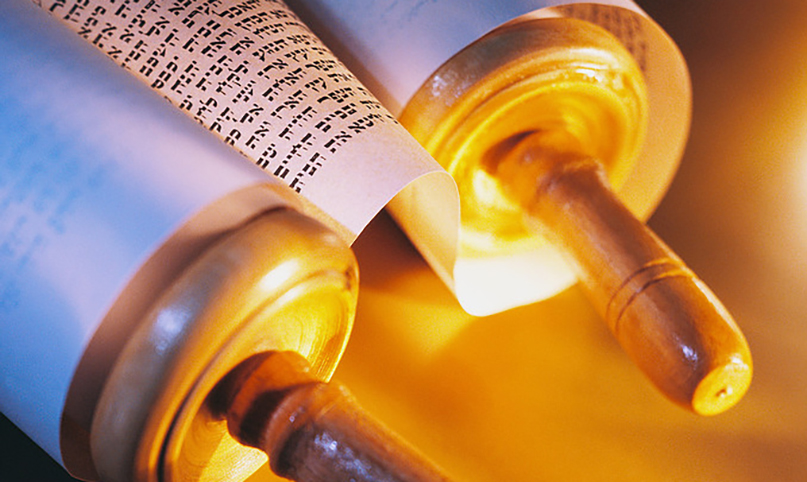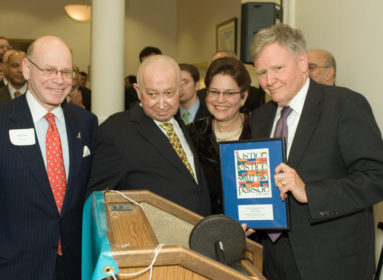
By Shlomo Riskin
One of the most moving rituals of the Jewish week, at the advent of the eighth day, is the havdalah (“separation”) ceremony, when we chant, “Behold, the Lord of my salvation in Whom I trust and thus I do not fear,” as we bid a sorrowful farewell to Shabbat amidst wine, spice and fire. Perhaps the feelings we experience as we go through this act of ‘separation’ (dividing the Sabbath from the rest of the week) require the wine and the sweet-smelling fragrances to refresh and re-invigorate our spirits when we sense the leave-taking of the Sabbath Queen.
As we intone the blessing over the fire – recalling the teaching of our Sages that fire was created by Adam on that first, primordial Saturday night – we customarily look at our fingernails. Why? The commentator Rabbi Menahem Meiri suggests that when Adam was created, his entire body was covered with the same strong substance of the fingernails as a protective coat. When the forbidden fruit of knowledge of good and evil was eaten, this protective coat was removed – with only the fingernails serving as a reminder of his earlier more protected state. At the end of the havdalah ceremony, we are in effect requesting a return to the more guarded human estate in Eden.
Our portion of Shemini opens, “And it happened on the eighth day.” Rashi comments, “the eighth day of the consecration ceremonies of the Sanctuary, the first day of the month of Nissan, the very day on which the Sanctuary was erected.” And it was on this very same eighth day – in the midst of the celebration following the Divinely-sent fire which consumed the offering on the altar as a sign of heavenly acceptance – that Nadav and Avihu were also consumed by a Divine fire! What occasioned such Divine wrath, and what is the significance of the eighth day, which gives the Biblical portion its name?
Let us return to the initial seven days of creation, when the Almighty created the heavens and the earth, and all of their hosts. On the sixth day He created the human being and placed him – Adam together with his wife Eve – in the Garden of Eden. The first couple sinned by plucking the fruit of Knowledge of Good and Evil from off the tree and eating it. From that moment, good and evil were no longer rooted in an objective morality created by God; good and evil became whatever the human being believed is good or evil for him/her. That is why our mystical literature refers to Adam’s sin as his having “severed the plantings” (kitzetz banetiyot), removing the seed from its source.
Then came the first Sabbath Day, a time when each individual can find refuge under the wings of the Divine Presence. Indeed the Midrash (Bereishit Rabbah) teaches us that Adam recited the Psalm for the Sabbath Day for the first time, genuinely uplifted by the understanding that there truly existed a road back to Eden and that it was paved with stones of repentance and repair.
On the seven days of creation, God created a world for the human being to live in; on the eighth day Adam discovered – through fire – how he could repair and improve that world. If, on the seven days of creation, God made a world for humanity, on the eighth day of the consecration of the Sanctuary, the Israelites made a Sacred Space – an improved world – in miniature, in which God could dwell together with humanity: “They shall make for a Sanctuary so that I may dwell in their midst.” (Exodus Trumah).
Fire is the human response to God’s light. But fire is a double-edged sword; it can bring light and warmth, or it can bring cannon fire and nuclear destruction. The blessing over fire, which attributes fire to its ultimate Divine source, must remind us that we must serve God in accordance with His Divine laws, that we dare not remove our creativity from its Divine direction. To do so would be a repetition of Adam’s original sin.
God sent down His Divine light and fire as a sign that He accepted our Sanctuary, the work of human hands – which carried out to perfection the Divine architectural directions. Then Nadav and Avihu came along with “a strange fire, which they had not been commanded to bring (Lev. 10:1).” Yes, we must use our creativity in the service of God to perfect ourselves and our world – but only in accordance with His will, in accordance with the limits He has placed on Divine Service, so that we never fall into the trap of bringing the strange fires of Moloch (Deut. 18:10) and the immoral wars of Jihad (which also involves the sacrifice of children). Human hands created fire – but human hands must use that fire to recreate and not to destroy. And therefore we look at our fingers as we make the blessing over fire every Saturday night, the beginning of our weekly “eighth day.” We are telling ourselves that everything – the entire future of our lives and our world – lies in our own hands!








 Southern New England Jewish Ledger
Southern New England Jewish Ledger









